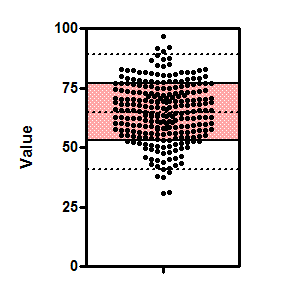

Treatment groups are independent of one another.The response of interest is continuous and normally distributed for each treatment group.H a: μ 1 ≠ μ 2 Independent Samples T-test AssumptionsĪn independent samples t-test requires the following assumptions: The two-sided null hypothesis is that there is no difference between treatment group means, while the alternative hypothesis is that mean values differ between treatment groups.


An independent samples t-test is the simplest form a “between-subjects” analysis. Thus, the treatment groups do not have overlapping membership and are considered independent. For example, you may want to see if first-year students scored differently than second-year students on an exam.Īn independent samples t-test is typically used when each experimental unit, (study subject) is only assigned one of the two available treatment conditions. An independent samples t-test is typically performed when an analyst would like to test for mean differences between two treatments or conditions.


 0 kommentar(er)
0 kommentar(er)
